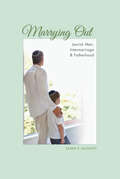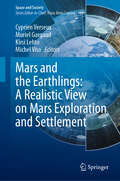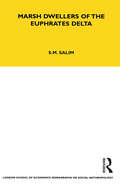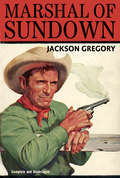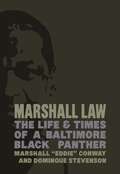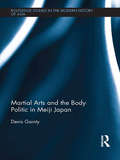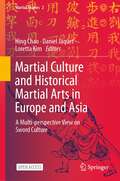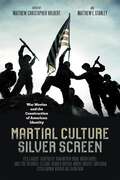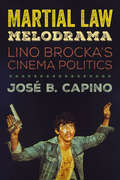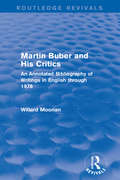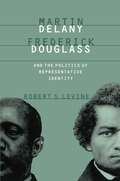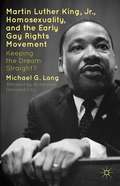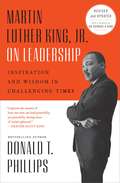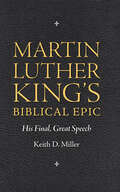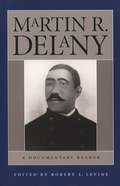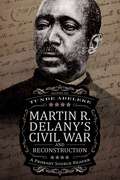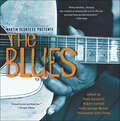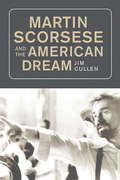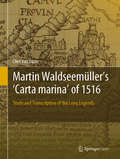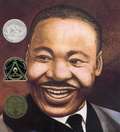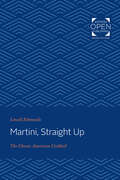- Table View
- List View
Marrying Out: Jewish Men, Intermarriage, & Fatherhood (The Modern Jewish Experience)
by Keren R. McGinity&“Captures the telling details and the idiosyncratic trajectory of interfaith relationships and marriages in America.&” —The Forward When American Jewish men intermarry, goes the common assumption, they and their families are &“lost&” to the Jewish religion. In this provocative book, Keren R. McGinity shows that it is not necessarily so. She looks at intermarriage and parenthood through the eyes of a post-World War II cohort of Jewish men and discovers what intermarriage has meant to them and their families. She finds that these husbands strive to bring up their children as Jewish without losing their heritage. Marrying Out argues that the &“gendered ethnicity&” of intermarried Jewish men, growing out of their religious and cultural background, enables them to raise Jewish children. McGinity&’s book is a major breakthrough in understanding Jewish men&’s experiences as husbands and fathers, how Christian women navigate their roles and identities while married to them, and what needs to change for American Jewry to flourish. Marrying Out is a must read for Jewish men and all the women who love them. &“An important analysis of this thorny issue . . . filled with vivid vignettes about intermarried couples.&” —Jewish Book World
Mars and the Earthlings: A Realistic View on Mars Exploration and Settlement (Space and Society)
by Muriel Gargaud Kirsi Lehto Michel Viso Cyprien VerseuxIn an era of public Mars fascination, this book offers an objective presentation of the challenges of crewed Mars missions and discusses scenarios of Mars settlements under scientific, technical, social, economic , ethical and political aspects. With the aim to make the reader comprehend what is plausible and what is at stake, the book tries to clarify misconceptions and half-truths spreading rapidly in the public. The authors argue that approximations and misinformation should be countered for two main reasons. First, to avoid missing out on the benefits that Mars exploration may bring, including major scientific discoveries and an inspiring, federative human endeavor. Second, to remediate dangerous delusions – such as the idea that humanity could be transferred there should the Earth become inhabitable in the near term. In preparation for this book a group of European, world-renowned scientists from fields as diverse as astronomy, planetology, geology, biology, philosophy, or economics, as well as astronauts and science-fiction writers, was gathered to discuss Mars missions ranging from near-term robotic missions, all the way to large-scale settlements and even the feasibility of terraforming. For each, they draw arguments from their domains of expertise to discuss what is feasible and what is desirable. The result provides researchers with an objective review of the field, policy makers with a reference to make informed decisions, and the general public with a tool to form educated opinions.
Marsh Dwellers of the Euphrates Delta (LSE Monographs on Social Anthropology #Vol. 23)
by S. M. SalimDr Salim, of Bagdad University, spent two years amongst the remarkable tribal peoples who inhabit the great marshes of the lower Euphrates. He describes their social and economic organization and discusses on the one hand the process by which people with bedouin traditions and values have adapted themselves to different and difficult conditions, and on the other the effects upon them of submission to the central government and the modernisation of their modes of life that has resulted from it. His account offers a fascinating study of people living in an unusual environment, and will be of value to the anthropologist and ethnologist for its precise ethnography. At the same time, as one of the few detailed studies of the changes now being wrought on such a large scale by modern economic and political forces, it has real importance for the general student of contemporary Middle Eastern affairs.
Marshal of Sundown
by Jackson GregoryMarshal of Sundown, first published in 1937, is a classic tale of the Old West by Jackson Gregory (1882-1943), author of more than 40 western and detective novels. From the dust-jacket: The least likely candidate for marshal of Sundown was Jim Torrance ... a man wanted throughout the Southwest for every crime from bank robbing to murder. And Sundown already had a marshal ... tough Rufe Biggs, owned body and soul by the man responsible for all the crimes Jim Torrance was charged with. But Torrance knew he had to wear the badge if he was to clear his name. And if his luck and his .44s held out, Torrance would do it.
Marshall Law
by Dominque Stevenson Marshall Eddie" ConwayIn 1970 the feds framed Marshall "Eddie" Conway for the murder of a Baltimore city police officer. He was twenty-four years old. They threw him in prison; took him away from his family, his friends, and his organizing; and tried to relegate him to a life marked by nothing but legal appeals, riots and lockdowns, and transfers from one penal colony to the next. But they failed.Forty years later, still incarcerated for a crime he didn't commit, Eddie Conway continues to resist. Marshall Law is a poignant story of strength and struggle. From his childhood in inner-city Baltimore to his political awakening in the military, from the rise of the Black Panther Party to the sham trial, the realities of prison life, escape attempts, labor organizing on the inside, and beyond, Eddie's autobiography is a reminder that we all share the responsibility of resistance, no matter where we are.Marshall "Eddie" Conway is the former minister of defense of the Baltimore Black Panther Party. In 1969 he uncovered evidence of the FBI's infiltration of the Panthers as a part of the COINTELPro initiative, and found himself locked away just one year later, convicted of a murder he did not commit. Currently in his fortieth year of incarceration in a Maryland correctional facility, he has played a leading role in a variety of prisoner support initiatives, including the formation of the Maryland chapter of the United Prisoner's Labor Union and the ACLU's Prison Committee to Correct Prison Conditions.
Marshall McLuhan's Mosaic
by Elena LambertiOne hundred years after Marshall McLuhan's birth, Elena Lamberti explores a fundamental, yet neglected aspect of his work: the solid humanistic roots of his original 'mosaic' form of writing. In this investigation of how his famous communication theories were influenced by literature and the arts, Lamberti proposes a new approach to McLuhan's thought.Lamberti delves into McLuhan's humanism in light of his work on media and culture, exploring how he began to perceive literature not just as a subject, but a 'function inseparable from communal existence.' Lamberti pays particular attention to the central role played by Modernism in the making of his theories, including the writings of Ford Madox Ford, James Joyce, Ezra Pound, and Wyndham Lewis. Reconnecting McLuhan with his literary past, Marshall McLuhan's Mosaic is a demonstration of one of his greatest ideas: that literature not only matters, but can help us understand the hidden patterns that rule our environment.
Martial Arts and the Body Politic in Meiji Japan (Routledge Studies in the Modern History of Asia)
by Denis GaintyIn 1895, the newly formed Greater Japan Martial Virtue Association (Dainippon Butokukai) held its first annual Martial Virtue Festival (butokusai) in the ancient capital of Kyoto. The Festival marked the arrival of a new iteration of modern Japan, as the Butokukai’s efforts to define and popularise Japanese martial arts became an important medium through which the bodies of millions of Japanese citizens would experience, draw on, and even shape the Japanese nation and state. This book shows how the notion and practice of Japanese martial arts in the late Meiji period brought Japanese bodies, Japanese nationalisms, and the Japanese state into sustained contact and dynamic engagement with one another. Using a range of disciplinary approaches, Denis Gainty shows how the metaphor of a national body and the cultural and historical meanings of martial arts were celebrated and appropriated by modern Japanese at all levels of society, allowing them to participate powerfully in shaping the modern Japanese nation and state. While recent works have cast modern Japanese and their bodies as subject to state domination and elite control, this book argues that having a body – being a body, and through that body experiencing and shaping social, political, and even cosmic realities – is an important and underexamined aspect of the late Meiji period. Martial Arts and the Body Politic in Meiji Japan is an important contribution to debates in Japanese and Asian social sciences, theories of the body and its role in modern historiography, and related questions of power and agency by suggesting a new and dramatic role for human bodies in the shaping of modern states and societies. As such, it will be valuable to students and scholars of Japanese studies, Japanese history, modern nations and nationalisms, and sport and leisure studies, as well as those interested in the body more broadly.
Martial Culture and Historical Martial Arts in Europe and Asia: A Multi-perspective View on Sword Culture (Martial Studies #2)
by Hing Chao Daniel Jaquet Loretta KimThis open access book is the first publication to provide a comparative framework for the study of martial culture and historical martial arts in Europe and Asia, in particular in Italy and China. Due to the interdisciplinary nature of martial studies, contributors to this volume include historians, archeologists, art historians, scholars of fencing literature, metallurgists, as well as contemporary master swordsmiths and masters-of-arms in historical martial arts. Assembling researchers from these diverse fields, this book offers a multi-perspectival and dynamic view of martial culture across time and space. The cross-cultural and interdisciplinary significance of this book cannot be overemphasized. Whereas a number of contributors are internationally recognized and, indeed, leading authorities in their respective fields; for example, Jeffrey Shaw has been a world-leading new media artist and scholar since the 1970s, while Ma Mingda is a well-known historian and the contemporary founder of Chinese martial studies; and while there are significant overlaps in their research interests, this book brings their research within a single volume for the first time. Equally significant, the book is structured in such a way to reflect the various core aspects of martial studies, particularly in relation to the study of historic sword culture, including history, culture, philosophy, literature and knowledge transmission, material culture, as well as the technical aspects of historical fencing. As one of the first titles on martial studies, this book becomes a reference not only for scholars taking an interest in this subject, but also for historians; scholars with interest in Chinese and/or Italian history (particularly of the Medieval or early modern periods), the history of international relations in Asia / Far East; anthropologists; scholars of martial (arts) studies and researchers in sword-making and/or historic metallurgy.
Martial Culture, Silver Screen: War Movies and the Construction of American Identity
by Liz Clarke Jason Phillips Brian Matthew Jordan David Kieran Andrew Graybill Kylie A. Hulbert James Trae" Welborn III Jessica Chapman Meredith Lair Andrew C. McKevitt Richard N. Grippaldi Calvin FaganMartial Culture, Silver Screen analyzes war movies, one of the most popular genres in American cinema, for what they reveal about the narratives and ideologies that shape U.S. national identity. Edited by Matthew Christopher Hulbert and Matthew E. Stanley, this volume explores the extent to which the motion picture industry, particularly Hollywood, has played an outsized role in the construction and evolution of American self-definition.Moving chronologically, eleven essays highlight cinematic versions of military and cultural conflicts spanning from the American Revolution to the War on Terror. Each focuses on a selection of films about a specific war or historical period, often foregrounding recent productions that remain understudied in the critical literature on cinema, history, and cultural memory. Scrutinizing cinema through the lens of nationalism and its “invention of tradition,” Martial Culture, Silver Screen considers how movies possess the power to frame ideologies, provide social coherence, betray collective neuroses and fears, construct narratives of victimhood or heroism, forge communities of remembrance, and cement tradition and convention. Hollywood war films routinely present broad, identifiable narratives—such as that of the rugged pioneer or the “good war”—through which filmmakers invent representations of the past, establishing narratives that advance discrete social and political functions in the present. As a result, cinematic versions of wartime conflicts condition and reinforce popular understandings of American national character as it relates to violence, individualism, democracy, militarism, capitalism, masculinity, race, class, and empire.Approaching war movies as identity-forging apparatuses and tools of social power, Martial Culture, Silver Screen lays bare how cinematic versions of warfare have helped define for audiences what it means to be American.
Martial Law Melodrama: Lino Brocka’s Cinema Politics
by José B. CapinoLino Brocka (1939–1991) was one of Asia and the Global South’s most celebrated filmmakers. A versatile talent, he was at once a bankable director of genre movies, an internationally acclaimed auteur of social films, a pioneer of queer cinema, and an outspoken critic of Ferdinand Marcos’s autocratic regime. José B. Capino examines the figuration of politics in the Filipino director’s movies, illuminating their historical contexts, allegorical tropes, and social critiques. Combining eye-opening archival research with fresh interpretations of over fifteen of Brocka’s major and minor works, Martial Law Melodrama does more than reveal the breadth of his political vision. It also offers a timely lesson about popular cinema’s vital role in the struggle for democracy.
Martin & Malcolm & America: A Dream or a Nightmare
by James H. ConeAn examination of the relationship between two giants of the 20th century and their challenge to "business as usual" in America. Cutting through the superficial depictions of the two as polar opposites, Cone reveals their visions to be complementary and moving toward convergence.
Martin Buber and His Critics (Routledge Revivals): An Annotated Bibliography of Writings in English through 1978
by Willard MoonanFirst published in 1981. Martin Buber has been acclaimed as one of the major philosophical and religious thinkers of the twentieth century with his influence and achievements spanning numerous fields — however in each of these areas his work has also been severely criticised and his influence called into question. This volume brings together in a systematic arrangement all the significant material by and about Martin Buber published in English up to the centenary of his birth in 1978. To make the bibliography as useful as possible, the critical material was annotated and various indexes were constructed, including an extensive subject index to both Buber’s works and the criticism.
Martin Delany, Frederick Douglass, and the Politics of Representative Identity
by Robert S. LevineThe differences between Frederick Douglass and Martin Delany have historically been reduced to a simple binary pronouncement: assimilationist versus separatist. Now Robert S. Levine restores the relationship of these two important nineteenth-century African American writers to its original complexity. He explores their debates over issues like abolitionism, emigration, and nationalism, illuminating each man's influence on the other's political vision. He also examines Delany and Douglass's debates in relation to their own writings and to the work of Harriet Beecher Stowe. Though each saw himself as the single best representative of his race, Douglass has been accorded that role by history--while Delany, according to Levine, has suffered a fate typical of the black separatist: marginalization. In restoring Delany to his place in literary and cultural history, Levine makes possible a fuller understanding of the politics of antebellum African American leadership.
Martin Heidegger Saved My Life (Forerunners: Ideas First)
by Grant FarredIn Martin Heidegger Saved My Life, Grant Farred combines autobiography with philosophical rumination to offer this unusual meditation on American racism. In the fall of 2013 while raking leaves outside his home, Farred experienced a racist encounter: a white woman stopped to ask him, &“Would you like another job?&” Farred responded, &“Only if you can match my Cornell faculty salary.&” The moment, however, stuck with him. The black man had gravitated to, of all people, Martin Heidegger, specifically Heidegger&’s pronouncement, &“Only when man speaks, does he think—and not the other way around,&” in order to unpack this encounter. In this essay, Farred grapples with why it is that Heidegger—well known as a Nazi—resonates so deeply with him during this encounter instead of other, more predictable figures such as Malcolm X, W. E. B. DuBois, or Frantz Fanon. Forerunners is a thought-in-process series of breakthrough digital works. Written between fresh ideas and finished books, Forerunners draws on scholarly work initiated in notable blogs, social media, conference plenaries, journal articles, and the synergy of academic exchange. This is gray literature publishing: where intense thinking, change, and speculation take place in scholarship.
Martin Luther King Jr., Homosexuality, and the Early Gay Rights Movement: Keeping the Dream Straight?
by Michael LongMartin Luther King, Jr., was not an advocate of homosexual rights, nor was he an enemy; however both sides of the debate have used his words in their arguments, including his widow, in support of gay rights, and his daughter, in rejection. This fascinating situation poses the problem that Michael G. Long seeks to address and resolve.
Martin Luther King, Jr., on Leadership: Inspiration and Wisdom for Challenging Times
by Donald T. PhillipsLeadership motivational speaker Donald T. Phillips, who has previously drawn organizational lessons for modern businesses from the careers of Abraham Lincoln and the Founding Fathers, turns to civil-rights leader Martin Luther King Jr. as a role model. A discussion of the Montgomery bus boycott, for example, draws out such principles as "Set goals and create a plan of action" and "Involve the people." More effective as a self-help book for business than as a biography, it does provide a useful introduction to King's life.
Martin Luther King’s Biblical Epic: His Final, Great Speech (Race, Rhetoric, and Media Series)
by Keith D. MillerIn his final speech “I've Been to the Mountaintop,” Martin Luther King Jr. delivered his support of African American garbage workers on strike in Memphis. Although some consider this oration King's finest, it is mainly known for its concluding two minutes, wherein King compares himself to Moses and seems to predict his own assassination. But King gave an hour-long speech, and the concluding segment can only be understood in relation to the whole. King scholars generally focus on his theology, not his relation to the Bible or the circumstance of a Baptist speaking in a Pentecostal setting. Even though King cited and explicated the Bible in hundreds of speeches and sermons, Martin Luther King's Biblical Epic is the first book to analyze his approach to the Bible and its importance to his rhetoric and persuasiveness. Martin Luther King's Biblical Epic argues that King challenged dominant Christian supersessionist conceptions of Judaism in favor of a Christianity that affirms Judaism as its wellspring. In his final speech, King implicitly but strongly argues that one can grasp Jesus only by first grasping Moses and the Hebrew prophets. This book also traces the roots of King's speech to its Pentecostal setting and to the Pentecostals in his audience. In doing so, Miller puts forth the first scholarship to credit the mostly unknown, but brilliant African American architect who created the large yet compact church sanctuary, which made possible the unique connection between King and his audience on the night of his last speech.
Martin R. Delany
by Robert S. LevineMartin R. Delany (1812-85) has been called the "Father of Black Nationalism," but his extraordinary career also encompassed the roles of abolitionist, physician, editor, explorer, politician, army officer, novelist, and political theorist. Despite his enormous influence in the nineteenth century, and his continuing influence on black nationalist thought in the twentieth century, Delany has remained a relatively obscure figure in U.S. culture, generally portrayed as a radical separatist at odds with the more integrationist Frederick Douglass. This pioneering documentary collection offers readers a chance to discover, or rediscover, Delany in all his complexity. Through nearly 100 documents--approximately two-thirds of which have not been reprinted since their initial nineteenth-century publications--it traces the full sweep of his fascinating career. Included are selections from Delany's early journalism, his emigrationist writings of the 1850s, his 1859-62 novel, Blake (one of the first African American novels published in the United States), and his later writings on Reconstruction. Incisive and shrewd, angry and witty, Delany's words influenced key nineteenth-century debates on race and nation, addressing issues that remain pressing in our own time.
Martin R. Delany's Civil War and Reconstruction: A Primary Source Reader
by Tunde AdelekeMilitant? Uncompromising? Pragmatic? Utilitarian? Accommodating? Conservative? To engage Martin Robison Delany (1812–1885) is to wrestle with almost all the complexities and paradoxes of nineteenth-century black leadership in one public intellectual. After his previous book on Delany, senior historian Tunde Adeleke has compiled here letters, speeches, contemporary nineteenth-century newspaper articles, and reports written by and about Delany. These vital primary sources cover his Civil War and Reconstruction career in South Carolina and include key critical reactions to Delany’s ideas and writings from his contemporaries. There are over ninety documents, the vast majority not previously published. Delany remains the subject of conflicting and confusing interpretations. Adeleke indicates that Delany actually manifested complex dispositions. He presaged manifestations of the strands of both protest and compromise that would define the early twentieth-century world of Booker T. Washington and W. E. B. Du Bois. An African American abolitionist and journalist, Delany advocated for black nationalism, one of the first to do so. After working alongside Frederick Douglass to publish the North Star in the 1840s, Delany looked into establishing a settlement in West Africa. Yet during the Civil War, he served as the first African American field grade officer in the Union Army. Then he labored for the Freedmen’s Bureau in South Carolina. Delany even ran unsuccessfully for lieutenant governor as a Republican and later defected to the Democrats. These documents will prove an indispensable call and response to an unparalleled intellectual life.
Martin Scorsese Presents The Blues: A Musical Journey
by Peter GuralnickA companion book to the PBS documentary series exploring the history of the blues and its contribution to American culture and music worldwide.A companion to the groundbreaking documentary series, this volume is a unique and timeless celebration of the blues, from writers and artists as esteemed and revered as the music that moved them.Included in this stunning collection are:Essays by David Halberstam, Hilton Als, Suzan-Lori Parks, Elmore Leonard, Luc Sante, John Edgar Wideman, and many othersTimeless archival pieces by writers such as Stanley Booth, Paul Oliver, and Mack McCormickEvocative color illustrations and rare vintage photographyIlluminating and in-depth conversations and portraits of musicians, ranging from Robert Johnson and Bessie Smith to John Lee Hooker and Eric ClaptonLyrics of legendary blues compositionsPersonal essays by the series directors Martin Scorsese, Charles Burnett, Richard Pearce, Wim Wenders, Marc Levin, Mike Figgis, and Clint EastwoodExcerpts from literary masters James Baldwin, Ralph Ellison, Eudora Welty, Zora Neale Hurston, Langston Hughes, and William FaulknerTracing the art form’s path from juke joints, house parties, and recording studios to musicians such as Elvis Presley, The Rolling Stones, and The Beatles, Martin Scorsese Presents The Blues proves, in the words of Willie Dixon, “The blues are the roots; every-thing else is the fruits.”Praise for Martin Scorsese Presents The Blues“Richly detailed . . . the book has a wealth of material with a lot of riffs and personal takes by talented writers.” —USA Today“A must-read for any blues fans.” —Chicago Tribune“Essential . . . for anyone who cares about American history, black culture, and current music.” —Miami Herald“Even if you’re a blues hound with hundreds of discs in your collection, this book is a learning experience, and richly enjoyable.” —Kansas City Star
Martin Scorsese and the American Dream
by Jim CullenMore than perhaps any other major filmmaker, Martin Scorsese has grappled with the idea of the American Dream. His movies are full of working-class strivers hoping for a better life, from the titular waitress and aspiring singer of Alice Doesn’t Live Here Anymore to the scrappy Irish immigrants of Gangs of New York. And in films as varied as Casino, The Aviator, and The Wolf of Wall Street, he vividly displays the glamour and power that can come with the fulfillment of that dream, but he also shows how it can turn into a nightmare of violence, corruption, and greed. This book is the first study of Scorsese’s profound ambivalence toward the American Dream, the ways it drives some men and women to aspire to greatness, but leaves others seduced and abandoned. Showing that Scorsese understands the American dream in terms of a tension between provincialism and cosmopolitanism, Jim Cullen offers a new lens through which to view such seemingly atypical Scorsese films as The Age of Innocence, Hugo, and Kundun. Fast-paced, instructive, and resonant, Martin Scorsese and the American Dream illuminates an important dimension of our national life and how a great artist has brought it into focus.
Martin Waldseemüller’s 'Carta marina' of 1516: Study and Transcription of the Long Legends
by Chet Van DuzerThis open access book presents the first detailed study of one of the most important masterpieces of Renaissance cartography, Martin Waldseemüller’s Carta marina of 1516. By transcribing, translating into English, and detailing the sources of all of the descriptive texts on the map, as well as the sources of many of the images, the book makes the map available to scholars in a wholly unprecedented way. In addition, the book provides revealing insights into how Waldseemüller went about making the map -- information that can’t be found in any other source. The Carta marina is the result of Waldseemüller’s radical re-evaluation of what a world map should be; he essentially started from scratch when he created it, rejecting the Ptolemaic model and other sources he had used in creating his 1507 map, and added more descriptive texts and a wealth of illustrations. Given its content, the book offers an essential reference work not only on this map, but also for anyone working in sixteenth-century European cartography.
Martin's Big Words: The Life Of Dr. Martin Luther King, Jr.
by Doreen RappaportThis picture book biography of Dr. Martin Luther King, Jr. brings his life and the profound nature of his message to young children through his own words. Martin Luther King, Jr. , was one of the most influential and gifted speakers of all time. Doreen Rappaport uses quotes from some of his most beloved speeches to tell the story of his life and his work in a simple, direct way. A timeline and a list of additional books and web sites help make this a standout biography of Dr. King.<P><P> Winner of the Caldecott Honor<P> Jane Addams Children’s Book Award Winner
Martin's Hundred
by Ivor Noel-HumeA story of an archaeological excavation near Jamestown, Va. The site has been dated from 1620's. This book talks about finding potsherds, skeletons, buttons and armour. These help to date the site and tell the story of what happened here.
Martini, Straight Up: The Classic American Cocktail
by Lowell EdmundsOriginally published in 1998. From its contested origins in nineteenth-century California; through its popularity among the smart set of the 1930s, world leaders of the 1940s, and the men in the gray flannel suits of the 1950s; to its resurgence among today's retro-hipsters: Lowell Edmunds traces the history and cultural significance of the cocktail H. L. Mencken called "the only American invention as perfect as a sonnet."
